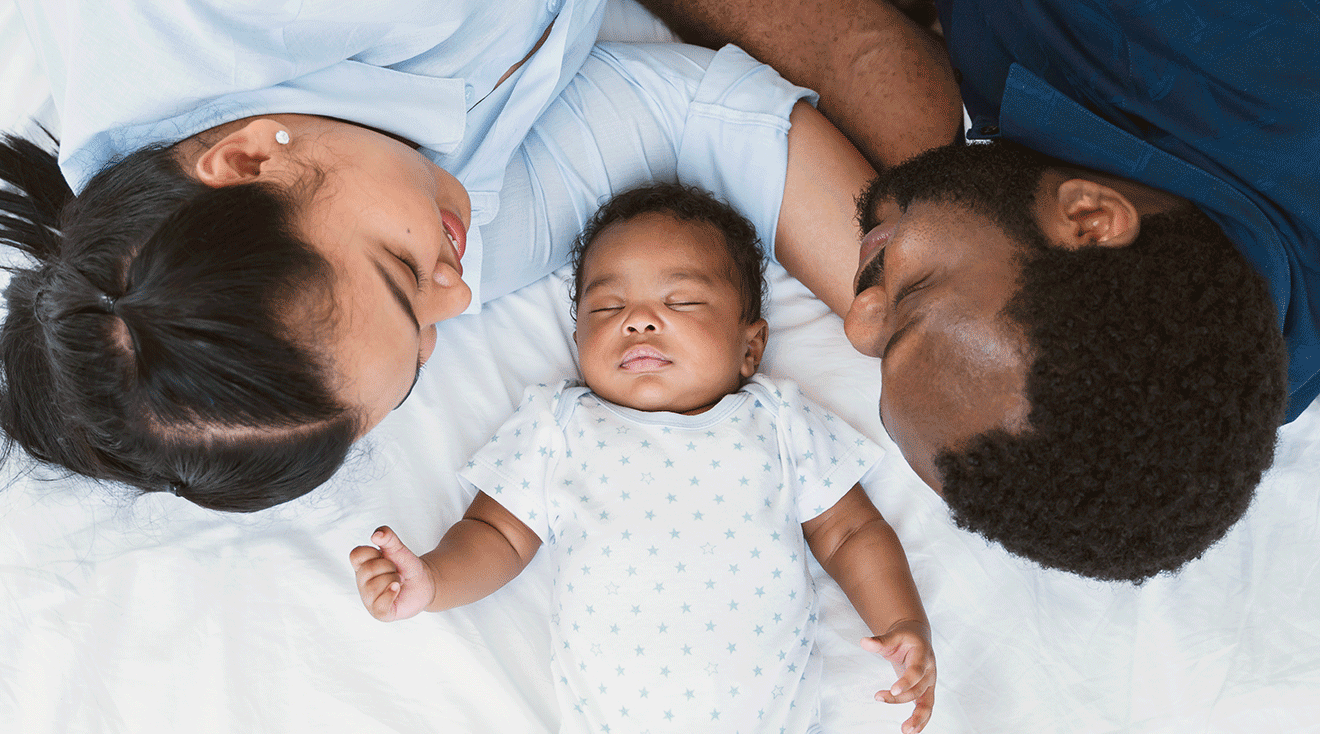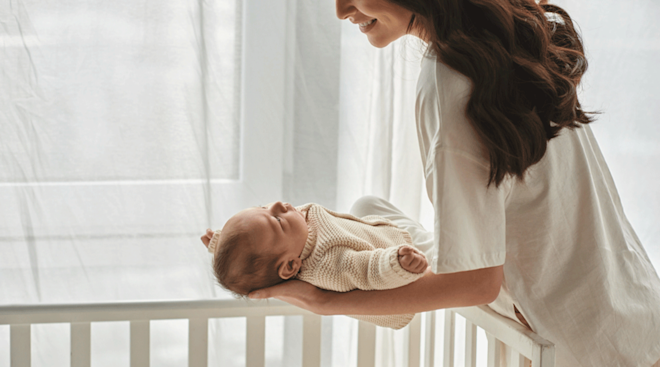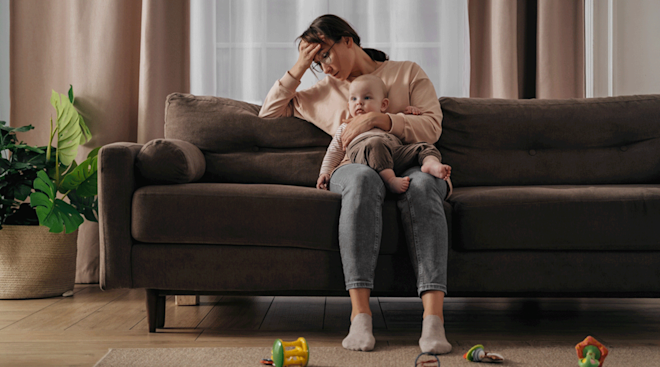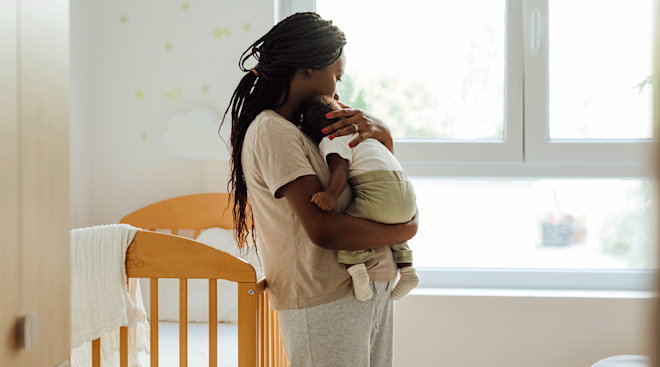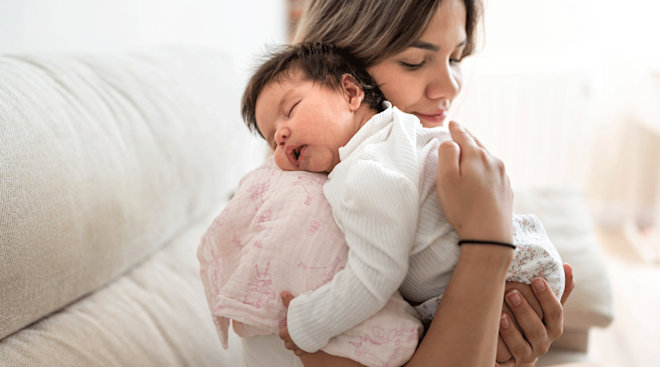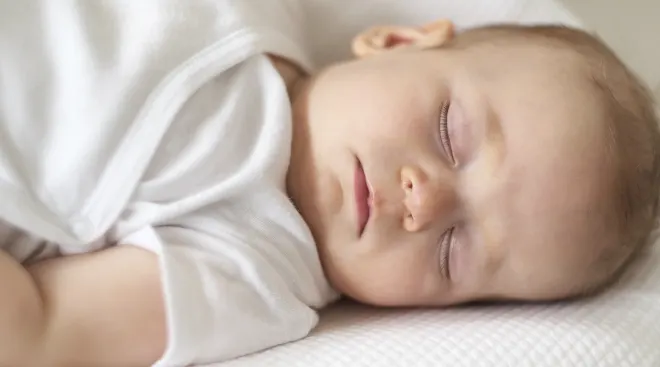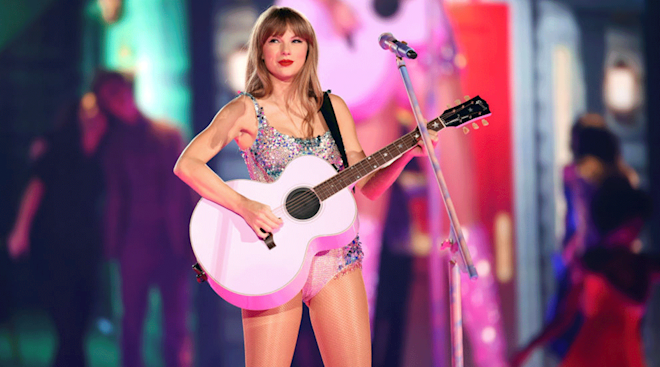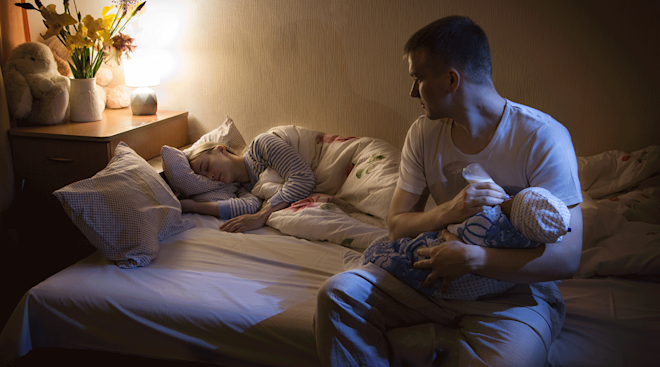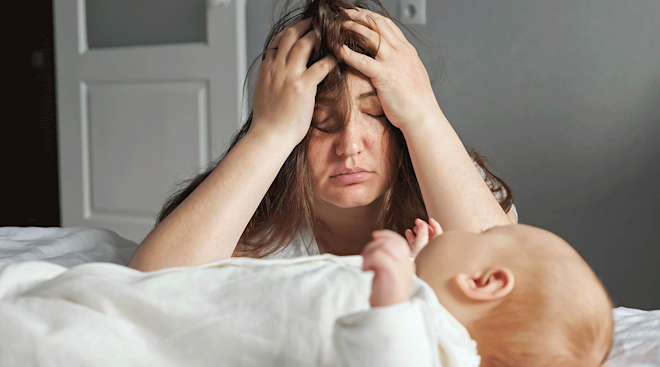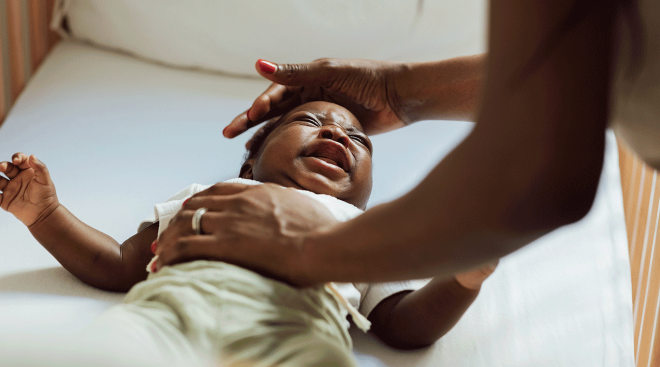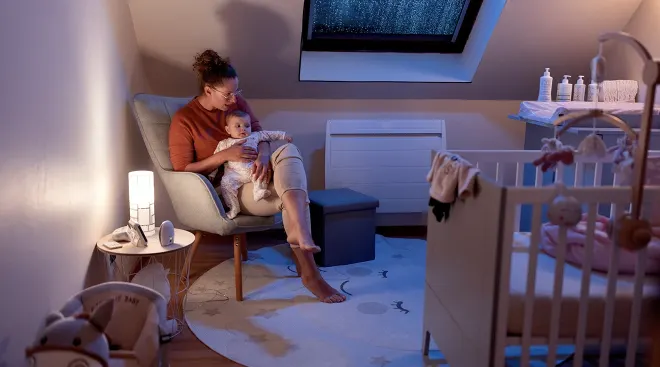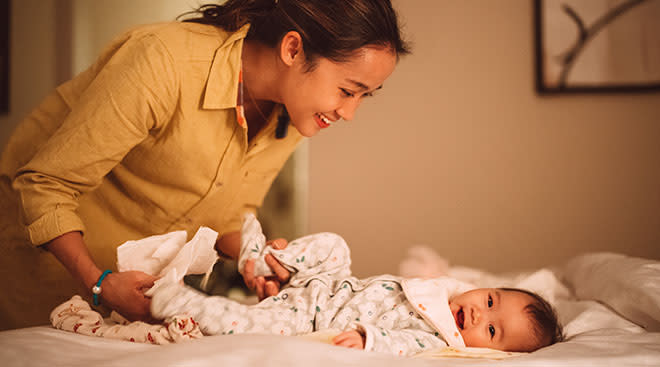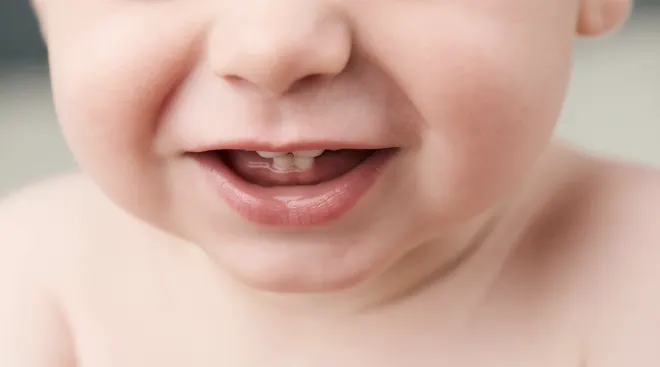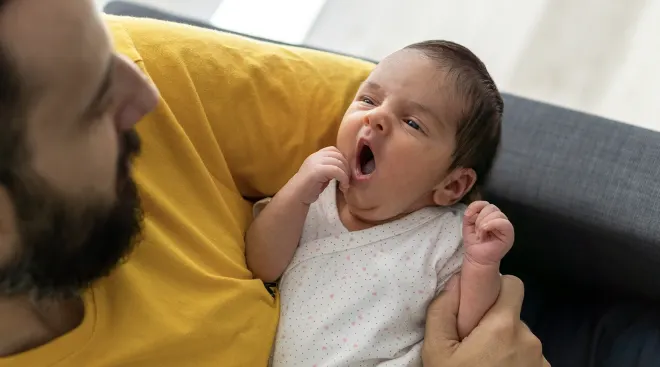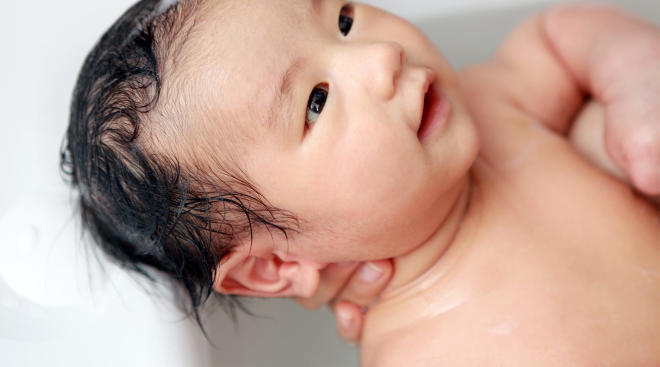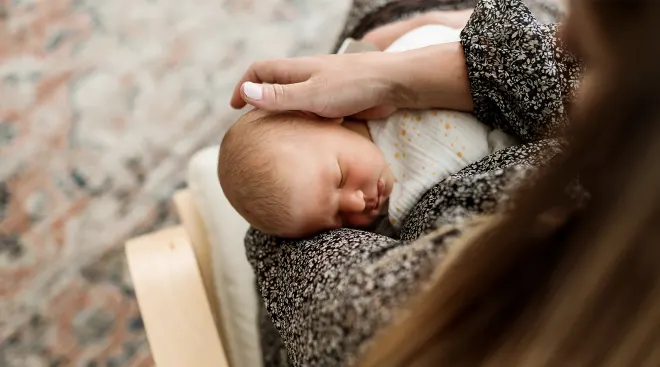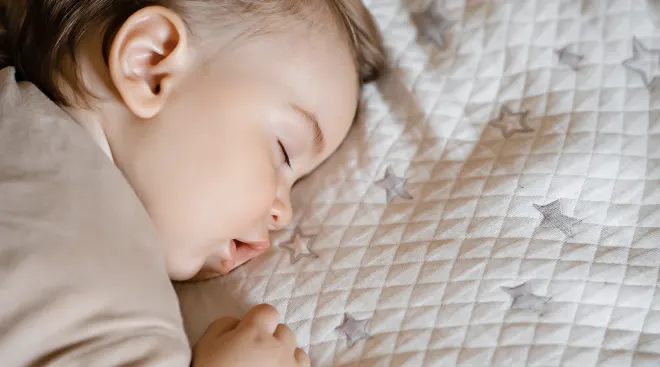Do Babies Dream? (and What Do They Dream About?)
Babies spend most of their time sleeping—so we can only hope that they’re having delightful dreams while doing so. While it’s pretty hard (read: impossible) to get reliable answers from babies themselves, scientists have managed to make some interesting discoveries about what happens when babies snooze. So, do babies dream—and, if so, what do babies dream about? Read on for everything you want to know.
Recent research shows it’s likely that babies do dream, at least in some sense. “Since babies have REM sleep—the sleep where most children and adults dream—it’s widely believed that babies dream to some level,” says Kelsey Alford, CPNP-PC, a pediatric nurse practitioner and owner of Nested Sleep, a holistic baby sleep consultancy. “During rapid-eye-movement sleep, when we dream, the brain is thought to be processing stored memory. While it’s hard to tell for sure what babies are dreaming about, it’s likely happening.”
Since you can’t interview babies, scientists don’t know with certainty exactly what they dream about. However, we can make educated guesses about what their brains process while they sleep. Perhaps their dream journals would include familiar scenes and faces from their waking life—or even flashes of sounds and sensations from their time in the womb. It’s unlikely that baby dreams are complex or detailed, but they’re likely happening to some extent.
We can rest assured that babies aren’t having nightmares while they catch zzz’s. “During REM sleep, term newborns frequently display, in addition to rapid-eye-movement bursts, grimaces and small weak cries,” says Alford. “This isn’t believed to be related to nightmares or fears, but it could be a hunger cry or a need for a diaper change. We believe nightmares are more related to development, as the frequency of certain types of fears, worries and dreams is found to change across age groups.” She adds that dreams evolve to reflect the child’s world—from monsters under the bed in young childhood to scary math tests as children grow older.
“The earliest that a child will likely experience a nightmare is age 2, with the peak of nightmares occurring at the same time as the peak of imagination development, which is between ages 3 and 6 years old,” says Sarah Bossio, a certified pediatric sleep expert and the owner of Your Zen Baby Sleep, a baby sleep consultancy.
Frequently Asked Questions
When do babies start dreaming?
Alford explains that from birth to around 4 months, full-term babies experience REM sleep, the sleep stage in which people dream, shortly after falling asleep. At around 4 months, “REM sleep at sleep onset is brief and frequently interrupted by other stages or wakefulness,” says Alford. She attributes this change to the sleep regression. (Ah, what can’t you blame on that delightful time period?)
Do babies dream in the womb?
Believe it or not, babies begin experiencing REM sleep even before they’re born. Alford says that “between 28 and 30 weeks of gestation, most [of] a fetus’ time is spent in REM (dreaming) sleep, with little signs of an [non-REM] sleep state.” So babies are likely spending a great deal of time dreaming in the womb.
Do dreams wake baby up?
It’s unlikely that dreams wake babies up from sleeping. “While babies can wake from REM sleep, the dream itself is unlikely waking them up, but rather hunger, discomfort or environmental disruptions,” says Alford.
Bossio agrees. “No need to worry about a dream or nightmare waking them up this early on!” she says, adding that babies can wake up when transitioning between sleep stages if they haven’t quite mastered the art of settling back to sleep on their own. She says sudden wakeups can also happen “because they’re used to being rocked, patted or held to sleep and need these conditions to be recreated in order to successfully transfer sleep cycles.”
Although the exact content of baby dreams remains a mystery, the fact that they’re dreaming when they sleep is something to smile about. It’s sweet to imagine our bundles of joy processing our bonds as they drift off to dreamland.
Please note: The Bump and the materials and information it contains are not intended to, and do not constitute, medical or other health advice or diagnosis and should not be used as such. You should always consult with a qualified physician or health professional about your specific circumstances.
Plus, more from The Bump:
Kelsey Alford, CPNP-PC, is a pediatric nurse practitioner and the owner of Nested Sleep, a holistic baby sleep consultancy.
Sarah Bossio is a certified pediatric sleep expert and the owner of Your Zen Baby Sleep, a baby sleep consultancy.
Annual Review of Developmental Psychology, Sleep and Memory in Infancy and Childhood, December 2022
Learn how we ensure the accuracy of our content through our editorial and medical review process.
Navigate forward to interact with the calendar and select a date. Press the question mark key to get the keyboard shortcuts for changing dates.
































